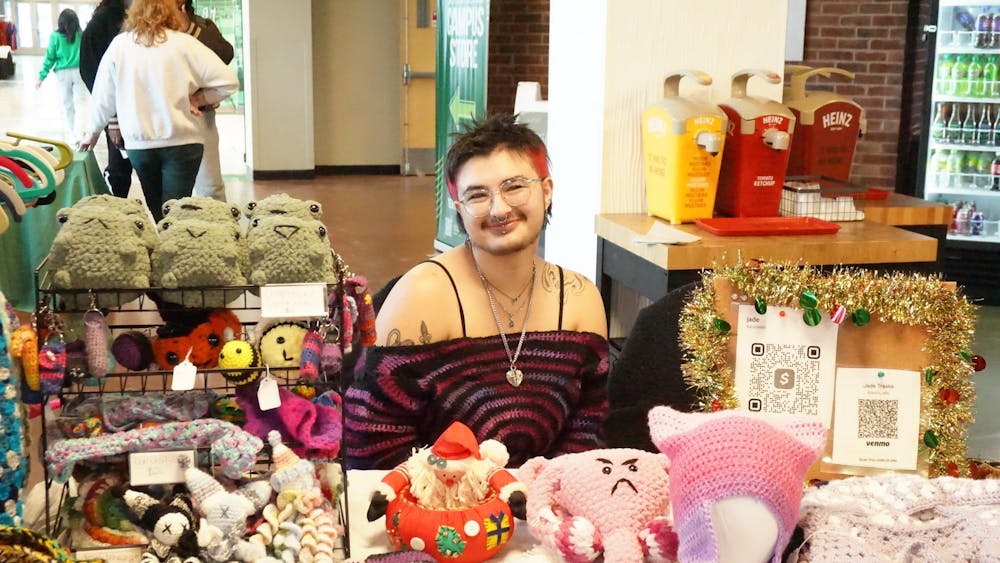Candidate for Governor Gretchen Whitmer visited Eastern Michigan University Tuesday, Nov. 14 to meet with college students as part of her campaign.
“This is our opportunity to set the agenda and make this a state where every millennial, every head of a family household, every retiree can thrive and enjoy a great life here in Michigan,” Whitmer told the Echo in an interview. “That’s what it’s all about – it’s not about me, it’s about us.”
About 40 people gathered in the student center auditorium for the meet and greet. The event ran from 8p.m. to 9:30p.m. with Whitmer speaking at 8:30p.m.
Like gubernatorial candidates Abdul El-Sayed and Shri Thanedar’s similar town halls at EMU, Whitmer followed the same format. She began by talking about herself and her campaign first, then opened up a Q&A for the audience, which made up 30 minutes of the 40-minute event.
During her speech, Whitmer started out talking about her love for Michigan, but finding the state isn’t how it used to be. Focusing on education, she mentioned the prevalence of college debt as well as the struggle to keep students in the state after they graduate.
“There was a point in time when Michigan valued a higher education,” she said. “The cost of your education was paid for by the state because we knew the concentration of talent is what moved the state forward.”
Whitmer mentioned her introduction of the Michigan 2020 plan back in 2012, which would have funded four-year degrees for every Michigan student who wanted to pursue one to public colleges and universities within state borders. At the time, Whitmer was the Senate democratic leader and, according to her, helped author the plan.
She said the plan was modeled after the Kalamazoo Promise, a pledge group of anonymous donors who pay tuition for graduates from Kalamazoo high schools to get four-year degrees.
“I did it [free college program] long before Bernie Sanders did it on the campaign trail, I did it long before Governor Cuomo made it a reality in New York,” she told the Echo. “We drafted that plan here in Michigan and tried to get it passed, but because we have republican leadership who has not made education – particularly higher education – a priority for them we couldn’t get it passed.”
Whitmer went on to talk in about her visions for healthcare in Michigan, greater transparency with political information, infrastructure plans and eliminating gerrymandering.
Going into the Q&A, Whitmer was asked about a potential single payer health system twice. On both occasions she didn’t explicitly say she would support such a system, but that she would do what she thought would give health care to all Michigan people.
“There are opportunities we can take a part of until Congress moves in that direction,” she said. “It think creating something like a Michigan health plan is very viable – we’re looking at and speaking with people like Maria Cantwell from Washington State as to how we can do that and get more people in Michigan covered.”
Hannah Zwolensky, one of the two people who asked about a single-payer system, said she thinks Whitmer avoided the question along with a couple others.
“She answered what she wanted to answer and not necessarily what the person asked,” she said. “As opposed to other candidates, I’ve seen others who have spoken better then her and have spoke better on policy then her, but I’m still excited to see more of her.”
On the other hand, Annie Somerville, treasurer for EMU College Democrats, was happy with Whitmer’s answers and speech in general.
“She’s [Whitmer’s] done some pretty phenomenal things,” she said. “She’s pretty well-rounded with issues – she’s not just focusing on one or two things. When she was asked a question she had an answer.”
Michigan’s gubernatorial election will take place Nov. 6, 2018.










